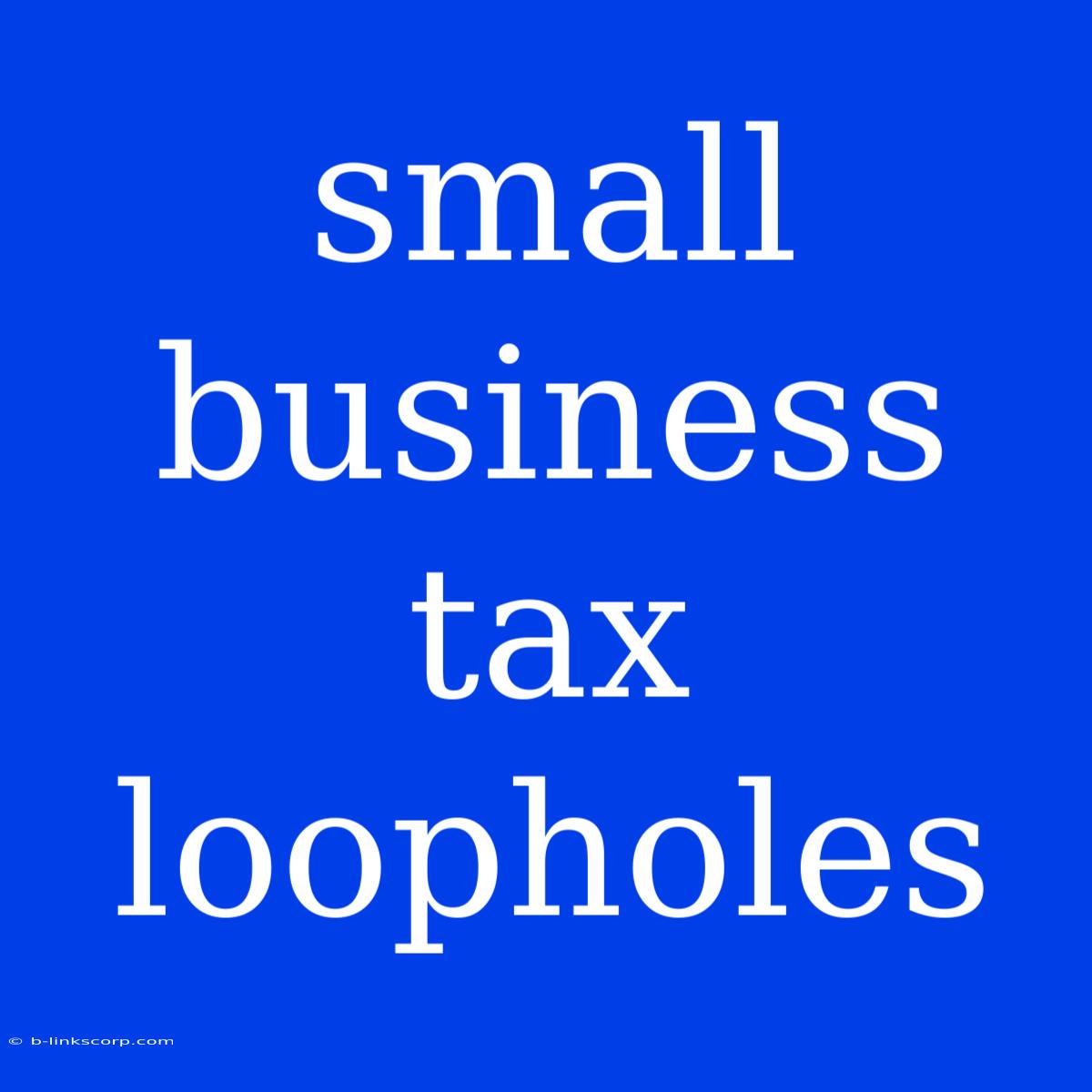Small Business Tax Loopholes: Unlocking Savings and Growth
Navigating the complex world of taxes as a small business owner can be daunting, but with the right knowledge, you can unlock potential tax savings and boost your bottom line. While the term "loophole" often carries a negative connotation, it simply refers to legal ways to minimize your tax burden.
Disclaimer: This article aims to provide general information and should not be considered as legal or financial advice. Always consult with a qualified professional for specific tax guidance tailored to your business situation.
Understanding Key Concepts
Before diving into specific tax strategies, it's crucial to understand a few key concepts:
- Deductions: These are expenses that can be subtracted from your gross income, reducing your taxable income and ultimately your tax liability.
- Credits: These are direct reductions of your tax liability, offering even greater savings than deductions.
- Tax-Advantaged Accounts: These accounts, such as 401(k)s and SEP IRAs, allow you to save for retirement while potentially reducing your current tax bill.
Small Business Tax Loopholes to Consider
Here are some common tax strategies that small business owners can utilize to potentially save on their tax bill:
1. Home Office Deduction:
- Who Qualifies: If you use a portion of your home exclusively and regularly for business purposes, you may be eligible.
- Benefits: Deduct expenses like rent, utilities, insurance, and repairs, based on the percentage of your home used for business.
2. Qualified Business Income Deduction (QBI):
- Who Qualifies: Owners of pass-through entities like sole proprietorships, partnerships, and S corporations may qualify.
- Benefits: Deduct up to 20% of your qualified business income, potentially saving you a significant amount on your taxes.
3. Section 179 Deduction:
- Who Qualifies: Businesses purchasing new equipment and assets.
- Benefits: You can deduct the full cost of qualifying assets in the year of purchase, rather than depreciating them over time, potentially accelerating your tax savings.
4. Employee Stock Ownership Plan (ESOP):
- Who Qualifies: Companies that want to incentivize employees and potentially reduce their tax liability.
- Benefits: ESOPs offer tax advantages for both the company and its employees. The company can deduct contributions, and employees avoid paying taxes on the value of the stock until they withdraw it.
5. Retirement Savings:
- Who Qualifies: Self-employed individuals and small business owners.
- Benefits: Utilize tax-advantaged retirement savings plans like SEP IRAs or Solo 401(k)s to potentially reduce your current tax bill and save for retirement.
6. Optimize Your Business Structure:
- Who Qualifies: Anyone considering starting a new business or reevaluating their current structure.
- Benefits: Choosing the right business structure (sole proprietorship, partnership, LLC, corporation) can significantly impact your tax obligations.
7. Seek Professional Guidance:
- Who Qualifies: All small business owners, regardless of their level of understanding of tax law.
- Benefits: A qualified tax professional can help you navigate the complexities of tax laws and identify specific tax-saving strategies tailored to your business.
Conclusion
While there are numerous tax-saving strategies available, it's crucial to remember that tax laws are constantly changing. To maximize your savings and ensure compliance, consulting with a qualified tax professional is essential. By understanding the basics and seeking expert guidance, you can unlock the potential of small business tax loopholes to your advantage, fostering sustainable growth for your enterprise.

